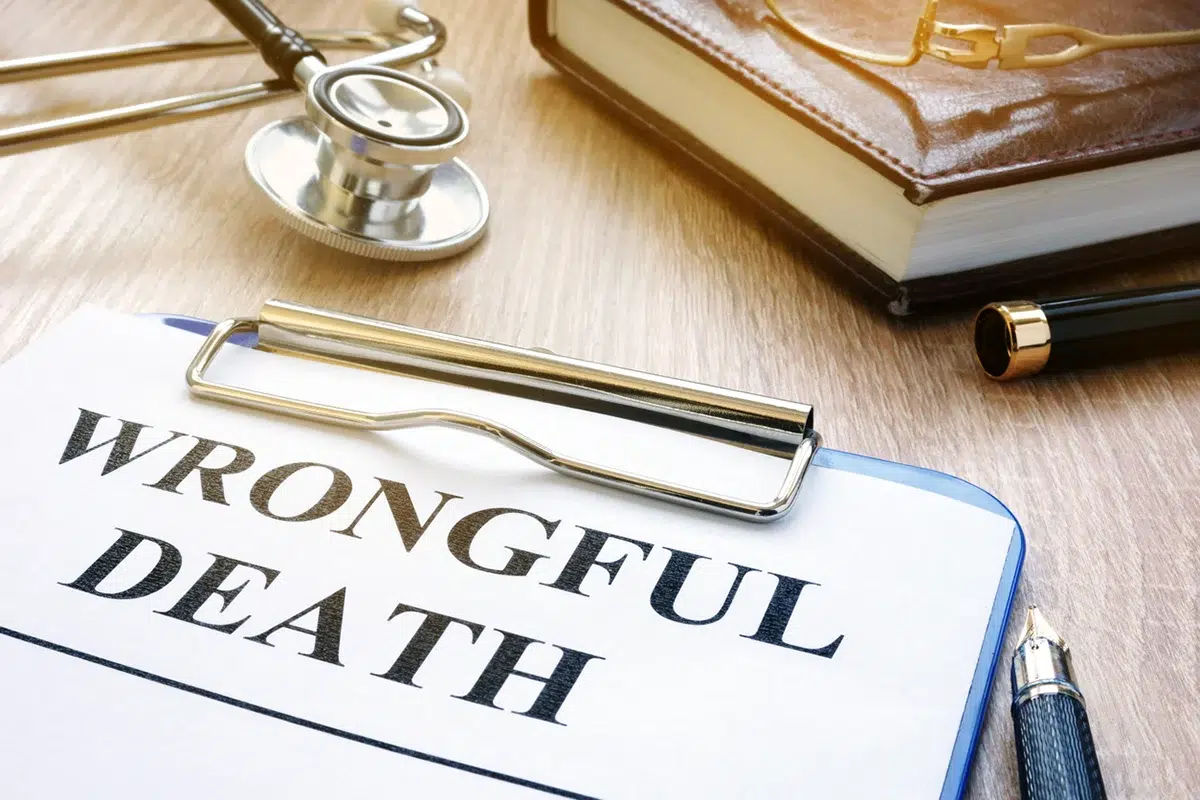As premier personal injury lawyers in San Francisco, we’ve seen our fair share of devastating cases. However, few are as heart-wrenching as those that involve wrongful death accidents. If you lost a loved one in a wrongful death case, we may be able to help. Contact us online today.
Losing a loved one is never easy. However, it’s especially difficult when their death was preventable. In addition to grief, the people left behind may be left to grapple with feelings of disbelief, rage and incredulity at the injustice of the situation.
In some cases, a loved one’s untimely death may also lead to financial upheaval—especially if they were the primary breadwinner. The surviving family members may suddenly find themselves unable to afford their home, their car and other necessities. They may be forced to upend their entire lives just to make ends meet.
Now ask yourself: If you lost a loved one because someone else couldn’t be bothered to act responsibly, why should you pay the price for their recklessness? You shouldn’t. However, you may be left footing the bill if you don’t take action.
At Delfino, Green & Green, we specialize in helping injury victims and their families find the compensation they deserve. If someone’s negligent actions resulted in the death of your family member, you may be eligible to file a wrongful death claim. Although it won’t bring them back, a settlement can help ease the financial burden left in their wake.
Interested in learning more? The best way to explore your eligibility is to contact an experienced wrongful death attorney in San Francisco. In the meantime, keep reading to find out the most common causes and types of wrongful death cases in California.
Need help now? If you’re drowning in expenses, debt and financial uncertainty after a loved one was killed in an accident, our legal experts may be able to help. Give us a call at (415) 442-4646 to schedule a free case evaluation today.
California’s Wrongful Death Laws
Simply put, wrongful death is when somebody is killed because of another person’s negligence or misconduct. A wrongful death lawsuit is a civil action that is completely separate from any criminal prosecution that may occur.
Before exploring the different types and causes of wrongful death, it’s important to understand the laws surrounding it. Each state, including California, has specific laws about who can file a wrongful death claim and the available damages
Who Can File a Wrongful Death Claim?
Not just anyone can file a wrongful death claim. For example, the deceased’s second-cousin couldn’t suddenly appear after years of no contact and begin a lawsuit.
According to Statute § 377.60 of California’s Civil Code of Procedure, family members who are eligible to file a claim include surviving spouses, domestic partners, children and the children of deceased children. If the decedent has no surviving spouse or descendents, their parents, or siblings may be entitled to a claim.
In addition to these family members, individuals who can prove they were financially dependent on the deceased may be able to bring a lawsuit. This could include the following:
- The decedent’s putative spouse (a person who genuinely but mistakenly believed they were married to the deceased)
- The putative spouse’s children
- The deceased’s step-children
- The deceased’s parents
- The legal guardians of the decedent (if the parents are deceased)
If you think you are entitled to file a wrongful death claim but are unsure, the best thing you can do is consult with an experienced personal injury attorney in San Francisco.
Available Damages in a Wrongful Death Claim
In wrongful death cases (and personal injury cases in general), damages refer to the plaintiff’s claimed losses. Under California law, eligible parties can sue for many different damages, including the following.
- Economic damages. As the name suggests, economic damages refers to financial losses, including loss of financial support, such as salary and other income, loss of gifts and benefits, funeral and burial expenses and an approximate dollar value of household services that the deceased would have provided.
- Non-economic damages. These damages refer to intangible losses, such as loss of love, companionship, care, assistance, protection, support, etc. They also include things like a surviving partner’s enjoyment of intimacy and loss of guidance.
For people who aren’t in the legal world, understanding losses and damages they may be entitled to can be confusing. Don’t worry—this is something that your attorney can help you calculate.
What Are the Most Common Causes of Wrongful Death Cases?
Ultimately, the decision of whether or not to bring a wrongful death lawsuit is a personal one that should be discussed with family. Many surviving family members feel conflicted about what they see as benefiting financially from a loved one’s death. However, it’s more complicated than that.
The majority of people who bring wrongful death lawsuits (or personal injury lawsuits) don’t necessarily want to; afterall, who wants to start a potentially lengthy legal process when they’re grieving. However, they do so because it’s often the only way for them to recover financially.
Although there are many reasons to bring a wrongful death lawsuit, the following three are the most common:
- Wrongful acts. For example, if a loved one was the victim of a violent crime, the surviving family members may decide to bring a suit, regardless of criminal prosecution.
- Negligent acts. Eligible parties may decide to file a claim if their loved one died as a result of someone’s negligence. These acts could include failure to follow safety procedures or warn others of potential dangers.
- Default. Family members of the deceased may also bring a suit when the premature death of their loved one left them with outstanding claims that the deceased would have paid if still alive.
Laws regarding wrongful death aren’t always straightforward. If you believe you have a reason to bring a suit but don’t see that reason listed here, the best thing to do is consult an attorney.
Most Common Types of Wrongful Death Cases
Unfortunately, unintentional injury deaths and fatalities are far from uncommon. According to the Centers for Disease Control and Prevention (CDC), there are more than 200,000 unintentional injury deaths in the U.S. each year, making it the fourth most common cause of death.
Among the many types of wrongful death cases, the following are among the most common:
- Car accidents, truck accidents and other auto accidents
- Pedestrian accidents and bicycle accidents
- Premises liability (which includes slip-and-fall injuries)
- Product liability, including cases about defective products and faulty equipment
- Medical malpractice
- Accidental poisonings, overdoses and medication errors
- Boat- or swimming-related accidents
- On-the-job accidents
Although they are the most prevalent, these accidents are far from the only ones that result in wrongful death lawsuits. Regardless of type, if your loved one was killed in a preventable accident caused by someone else’s negligence, you may be eligible to file a claim.
Compassionate Wrongful Death Attorneys in the Bay Area
As experienced wrongful death lawyers in the Bay Area, we understand that beginning a lawsuit when you’re grieving the passing of a loved one is almost unthinkable.
As difficult as it is to think about, it’s important to remember that you do have a deadline for filing. If you’re experiencing financial strain because of your loved one’s passing, it’s important to start thinking about a claim now. Our attorneys have assisted countless individuals and families secure compensation, and we may be able to help you, too.
When you’re ready to get started, you can contact our law firm online to schedule a free consultation, or give us a call at (415) 442-4646 to speak with us directly.



